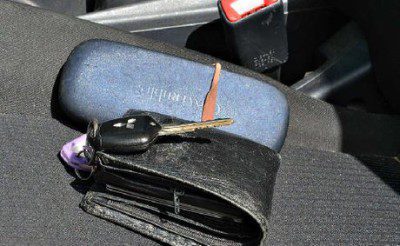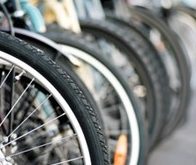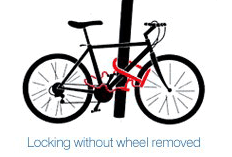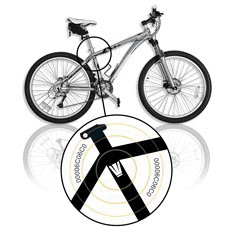September Crime Incidents
September (up to 28th) saw absolutely no crime reports for West Bergholt after what was also a quiet August.
Information Releases
Slightly more of these this month with the Chief Constable announcing new community engagement promises, advice on keeping bicycles secure from theft and general advice to avoid opportunist crimes.
Community Meetings
Despite budgetary constraints, the Chief Constable for Essex, Stephen Kavanagh, is keen to ensure community engagement in policing priorities and has recently made the following announcement:
Consistent and effective contact between communities and their local policing team is crucial.
Although there are a number of good local police and community meetings there are many that are poorly attended and not as effective as they could be. Therefore, I have decided to refresh our approach.
From October 1, 2014 my District Commanders are making the following commitments to local communities:
- We promise local PCSOs will hold a weekly ‘street meet’ on their patch
- We promise every district will hold five or six Local Community Meetings (every eight weeks)
- We promise Local Community Meetings (LCM) will be chaired by a supervisory officer (sergeant or above)
- We promise every LCM and street meet will be advertised on the Essex Police website in advance
- We promise our website will show agreed local priorities as well as the activity taken to address them.
With shrinking resources I need to make sure my officers can realistically deliver on the important promises we make to local communities. Involving a local Sergeant or Inspector in community meetings will ensure issues are dealt with promptly and that results are fed back to communities.
Local community meetings mean residents and businesses can work with their local policing team to address matters of concern. I encourage people to come and talk to us. Let us know about the issues that are important to you.
The new meeting structure will replace routine police attendance at Neighbourhood Action Panels (NAPs). Communities are encouraged to continue to hold NAPs but to bring any issues of concern to the attention of the relevant local community meeting.
Supporting the local community meetings, Police Community Support Officers (PCSOs) will hold weekly ‘street meets’ on their designated patch. Supermarkets, libraries, shopping centres and other public venues are all locations where these hour-long, informal meetings will be held.
Street meets and LCMs will be advertised in advance in the My Neighbourhood section of our website and via Essex Police Facebook and Twitter channels. Members of the public are invited to attend the meeting they feel is most appropriate to their concern. There is no need to book a space.
Implementation of the new structure will start on October 1, 2014 with an expectation that community meetings and street meets are fully operational across the county by November 1, 2014.
5 Tips to Keep your Bicycle Safe and Secure
In the UK, a bicycle is stolen on average every minute; with less than 5% of those returned as they’re difficult for the Police to identify the owner. Current research suggests that cyclists are more likely to have their bicycles stolen than motorcyclists their motorcycle or car owners their cars these days! Bicycle theft has doubled in the UK since the mid 1990s, probably due to the increasing popularity of expensive models and innovative ways of selling stolen goods online.
Take action against these unscrupulous thieves and protect your belongings, including your bicycle!
REDUCE THE CHANCES OF YOUR BICYCLE BEING STOLEN, INCREASE THE CHANCES OF IT BEING RECOVERED.
 Where to park?
Where to park?
Always lock your bicycle wherever you leave it – it only takes seconds to steal an unsecured bike. Make sure it’s locked in a well-lit public area with lots of people passing. Stations and public buildings often have designated areas with bicycle racks – Be sure to plan ahead and check out amenities in the places you need to leave your bicycle – remember to read signs in the area you intend to park being sure not to park illegally.
 Using a bicycle lock
Using a bicycle lock
Only use a good quality D-lock. A poor quality lock at the lower end of the market can be easily sawn through or bolt cropped in seconds. It certainly pays to invest in the best quality lock you can afford (At least £30 -£40). Always lock your bicycle to something immovable, an object a bicycle cannot be lifted over and cannot be broke, cut or removed i.e. chain link fencing, grilles, gates or trees – check the object is fastened to the ground. For maximum protection use two locks of different types (a D-lock and robust chain and padlock is ideal) Use each lock to catch the wheels, frame and stand – Fill up as much of the space within the D-lock as possible with the bicycle.
 At Home
At Home
As many as half of all bicycles are stolen from the owner’s home – Always lock your bike at home even when it is in your garage, flat or halls of residence. Please be vigilant when returning from a ride!! Consider investing in a ground anchor and attach it securely to a wall or concrete floor. Make sure you keep your bicycle out of view of prying eyes as this alone will provide an irresistible incentive to break in to your property.
Bicycle Insurance
If you own a decent bicycle then it is probably a good idea to insure it. There are several ways you can do this; Insure your bicycle on your home contents insurance – don’t forget to cover it for thefts away from home. More expensive bicycles may require specific insurance cover against theft and accidental damage.
 Registration & Police Identification
Registration & Police Identification
Before registering your bicycle on Immobilise take a photograph and along with this record the frame number and any key details such as make and model. Mark your frame with your postcode in two separate locations if possible, one of which should be hidden. Collectively this information stored on your Immobilise account will be crucial in recovering your bicycle should it be lost or stolen. It is important to consider that the frame or other identifiable codes could be removed by a thief and Radio Frequency Identification (RFID) Tagging of your bicycle is highly recommended (See diagram left) as its virtually impossible to remove from the bicycle’s frame!
Opportunist Crimes – Avoid that ‘Initial Attraction’
Without that initial attraction most crimes could be avoided, statistics show that most crimes are opportunist crimes; yes the perpetrator may go out intending to commit crime but the victim is not yet chosen. So if there is no attraction then you may not become a victim.
What is the attraction?

- The shed or garage with minimal security and tools visible through the window.
- A lone person down a dark street talking loudly on their illuminated new iPhone.
- The house in darkness with the side gate flapping open, welcoming.
- That accessible open window or door.
- The purse sitting in the open handbag on top of the shopping trolley.
- Group sitting chatting at a bar table with a mobile phone just sitting there on the table.
- The bag, or other valuables, on the back seat of an unattended car, even though the bag may only contain your sports clothes, the thief does not know this until he/she has smashed the window and stolen it.
- The tradesman’s sign-written van parked on the dark drive by the gate with accessible doors and unprotected pipe tube on the roof.
- The party-goer who’s had too much to drink and is unaware of his/her surroundings.
- Shiny new ride-on lawn mower sitting on the grass in full view of the road with no postcode/security markings visible.
The above is just short list I am sure you can think of more.
What can you do?
- STOP
- think like a thief,
- spot the attraction and
- where possible, remove it.
For Crime Reduction Advice contact – Stephen Armson-Smith, Colchester District Crime Prevention Officer using the police non emergency telephone number 101 then extension 436126.







